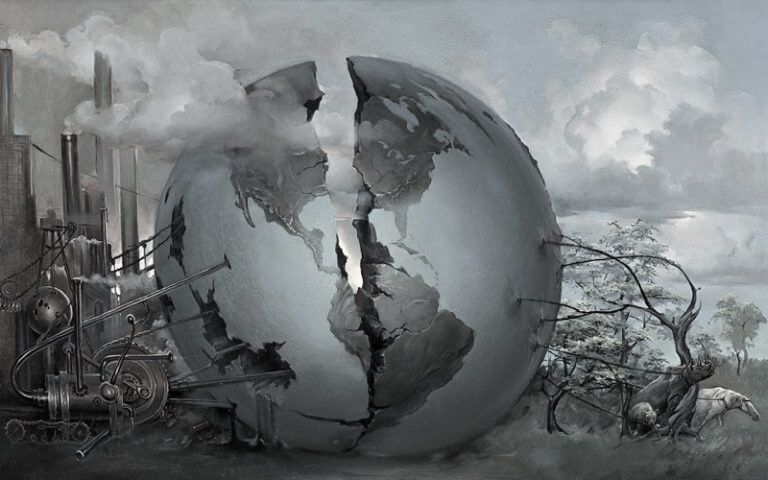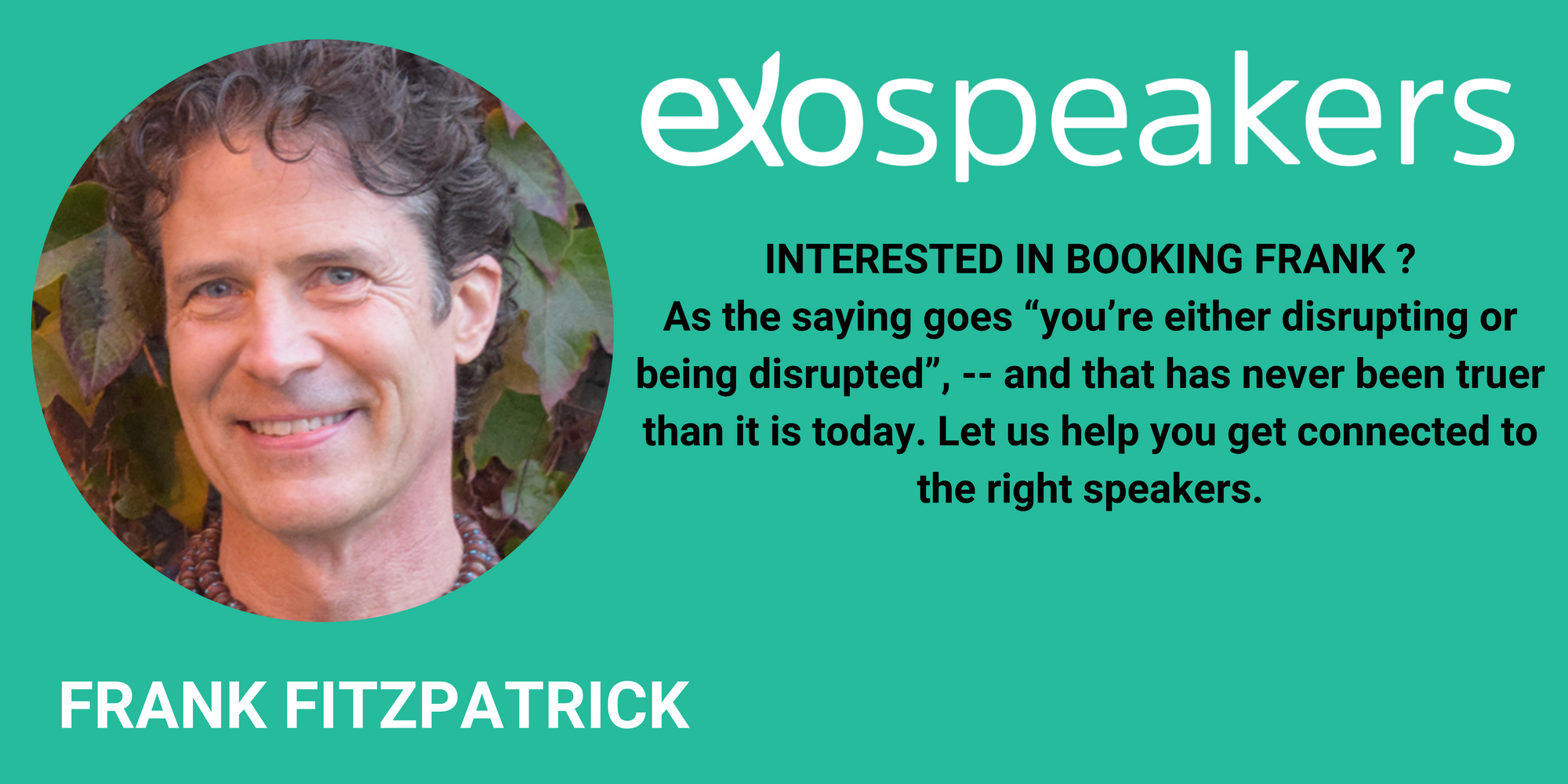
What Did Steve Jobs, George Harrison and Gandhi Have in Common?
It is ultimately our shared values, our respect for one another, the stories we tell, and our ability to listen to the voice of our own intuition, however, that will truly transform our world — inside and out.
The three visionaries were all shaped by the life and teachings of another cultural disruptor, businessman, and visionary leader named Paramahamsa Yogananda.
“Most of you have had the feeling that you could be great and do great things, but because you have lacked intuitive power, that potential has, for the most part, remained dormant.
To progress and avoid the misery of mistakes, you have to find what is the truth in everything …
In your relationships with others, in your business, in your married life, in every part of your life, intuition is essential.” — Paramahansa Yogananda, from Autobiography of a Yogi
Let’s connect the dots…
Steve Jobs, Tech Visionary, Apple Cofounder (1955–2011)
“The people who are crazy enough to think they can change the world are the ones who do.” —Steve Jobs
The one book Steve Jobs had on his iPad was Yogananda’s Autobiography of a Yogi.
He found its teachings so meaningful to his life that he made sure the book was gifted to every guest who attended his memorial service (pre-orchestrated by Jobs himself).
Salesforce Founder Marc Benioff, who started his career as an intern for Jobs, was in attendance that day. Based on their friendship, Benioff was not the least bit surprised by Steve’s parting gesture.
In a 2013 interview, he told Crunchfund’s Michael Arrington that Apple and others had failed to appreciate the spiritual side of Steve Jobs. “He had the ability to see the future and inspire it in others,” claimed Benioff.
The insights and lessons he extracted from The Autobiography of a Yogi played no small part in Jobs developing his abilities.
Beyond the science, spiritual philosophy, and disciplined practices of yoga and meditation, Yogananda taught that business success was dependent upon developing one’s intuitive capacity.
This deep connection to truth and intuition resonated with Jobs, who had become one of the world’s most inspired entrepreneurs.
George Harrison, Musical Icon, Beatle (1943–2001)
“Most people think when the world gets itself together we’ll all be okay. I don’t see that situation arriving. I think, one by one, we all free ourselves from the chains we have chained ourselves to.” —George Harrison, at a Los Angeles press conference in 1974
The Autobiography of a Yogi was one of George Harrison’s essential travel companions on his life-changing journey to India in 1966.
Through the music he created afterward, and by incorporating traditional mantras, he brought the teachings of India to global pop audiences.
During his visits to Los Angeles, George would spend time at Yogananda’s Self-Realization Fellowship in Encinitas, California, near the home of his friend and musical collaborator Ravi Shankar.
Before he passed, Harrison planned for proceeds from the 2002 reissue of his 1970 hit song “My Sweet Lord” to support the Self-Realization Fellowship and the teachings that shaped his life.
Mahatma Gandhi, Historical Legend, Nonviolent Freedom Fighter (1869–1948)
“Our greatest ability as humans is not to change the world, but to change ourselves.” -Mahatma Gandhi
You might say Yogananda was Gandhi’s yoga teacher. Yogananda first initiated Gandhi into Kriya Yoga in Wardha, India in 1935. The two remained good friends until Gandhi passed in 1948.
In 1950, Yogananda built a monument at his Lake Shrine Temple and Garden in Pacific Palisades, California. It is one of only two places, other than the sacred rivers of India, that remain home to Gandhi’s ashes.
The Lake Shrine recently celebrated the 101st anniversary of Yogananda coming to America (October 1920) and bringing the ancient wisdom, science, and practices of India to the West.
If you had the privilege of visiting the Lake Shrine during the anniversary month, you would have been greeted with a photo of Gandhi underscored by his words and the two leaders’ shared belief:
“The golden way is to be friends with the world.” —Mahatma Gandhi
What We Can Learn from These Icons
The word yoga means union.
The practices of yoga, mindfulness, and meditation help us settle the unrest within our minds, tune out relentless noise stealing our attention, and reunite with that inner voice of truth and intuition.
While some of you reading this may not know of, or care about, the life and teachings of Paramahamsa Yogananda, there is little doubt you’ve been influenced by one of the aforementioned icons and by the imprint Yogananda’s introduction of Vedic teachings left on Western culture.
The core message shared by each of these 4 visionaries is one that leaders and entrepreneurs can surely learn from and apply today:
Become self-actualized, do something great,
and make the world a better place for everyone.
Answers in the Midst of Chaos
Like the founders of our country, Yogananda was a revolutionary. The practices he taught are not religious dogma nor limited to any class or belief. He combined ancient wisdom with proven science, and spoke equally to Christians and Hindi, to atheists and spiritualists, and to politicians and industrialists.
In the face of great opposition, he worked tirelessly to help each of us self-actualize as humans, to love and respect our planet, and to embrace our responsibility as an inseparable part of a global interconnected family and collective body known as humanity.
Today, we find ourselves struggling to lead with integrity and wisdom in the midst of political chaos, a looming environmental catastrophe, a health pandemic, and an exploding mental-health crisis.
On the upside, we are seeing the seeds planted by intuitive leaders like Yogananda and Jobs emerge inside of new technologies, contemporary practices, and digital wellness platforms. In the midst of COVID, we are also witnessing an unprecedented consumer demand for new tools and resources that can help provide a greater sense of balance, meaning, and well-being.
Advances in digital technology will continue to introduce millions more to the practices of meditation and mindfulness and to help us communicate in new ways with our friends and family across the globe.
In the Amplified Future, Hearables will further transform how we experience the world and enhance our ability to take charge of our well-being and potential.
Technology Alone Is Not Enough
While two of the most powerful forces in the world today — technology and media — can help us, they can also greatly undermine our potential to hear that voice and, in doing so, keep us from the truth.
We need a more powerful force — one that embraces and celebrates our common humanity.
It is ultimately our shared values, our respect for one another, the stories we tell, and our ability to listen to the voice of our own intuition, however, that will truly transform our world — inside and out.

Leadership and Politics
We are facing a critical time for the world and the future of humanity. We are also more intricately connected than ever before in history. But humans are not machines. We are complex psychological and emotional beings.
Leadership is a double-edged sword. The world of tomorrow will be severely impacted by the actions of those at the helm today. Unfortunately, not all those at the helm care deeply about the future of humanity nor of our planet.
As a global society, we cannot collectively evolve as humans if we let political division and profits without integrity define who we are. The world is looking for new leaders – those who are committed to leading with courage, compassion, and integrity.
As global citizens, we will not survive the challenges we are facing unilaterally. Business as usual, even with the best technology, will no longer serve us.
“An eye for an eye only ends up making the whole world blind.” —Mahatma Gandhi
Tough Choices and Core Values
Leadership today is both a great privilege and a tremendous responsibility. That responsibility raises a few questions:
Can we transform the way we do business, reprogram our media, redefine human health, and elect our future leaders from a place that rises above race, greed, and political rhetoric?
Do we have the humility to undo the damage we have done — to embrace a global community and move from unilateralism to unity, from false protectionism to shared abundance?
Is each of us willing to do the inner work and show up as leaders and exemplars for truth, compassion, and inclusion at any cost?
Co-creating a Better Future — Together
We have the power and the resources to restore and rebuild America in the vision that Yogananda, Steve Jobs, George Harrison, Gandhi, and our forefathers all shared.
Together, we can stand united in those core values upon which America was once built:
Life, liberty, and the pursuit of happiness for all.
Together, we can rebuild a broken world, so all children — can experience a healthier, more peaceful, and more deeply connected future.
We owe it to them — to the trailblazers of the past and the young leaders of tomorrow.
The world is watching.
The choice is ours.
The time is now.
Think Different. Act accordingly.
This article was originally featured in Frank Fitzpatrick's Blog
Unleash your potential and add some music-charged power tools to your entrepreneur’s toolkit with the bestselling book Amplified.

ExO Insight Newsletter
Join the newsletter to receive the latest updates in your inbox.









